The term “melted my face off” is widely accepted amongst guitarists and concert-goers alike, and in most cases refers to someone being blown-away by a well executed guitar solo. Interestingly enough, it’s most often the guitarist on stage whose face appears to actually be melting.
We’ve seen it all; from the “Cringe”:
to the “my mouth is my wah-pedal”: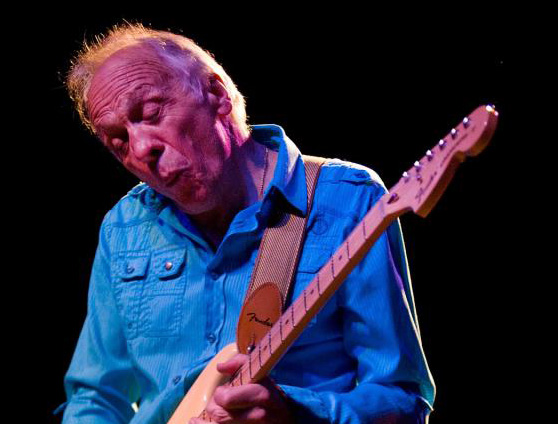
…and everything in between:
So why do they do that… is it all for show? Are they in physical pain from obscene string bending? Have they lost control of their face? Are they disgusted because they’ve imagined that their guitar has transformed into a giant slug?
All are valid reasons, and while science can point to a few things that may be the root of the cause, it’s still pretty indecisive. To come up with some of the obvious reasons, you have to first examine the environment and state of mind that the player is in when performing a solo.
1. Concentration.
You’ve seen it in kids, and sometimes in grown adults. They’re deep in thought, focusing all of their attention into one thing, and simply don’t notice that their tongue is hanging out of their mouths. This could be due to what’s known as motor overflow, “a condition whereby a stimulus is correctly interpreted and the appropriate response is made, however a secondary response by a muscle is also triggered”.
It’s an involuntary thing that happens to people when they’re concentrating, and for guitar players, the solo is the part of a song that requires the utmost attention. In many cases, they’re not simply rehearsing something they’ve practiced time and time again; they’re improvising on the spot. Perhaps having to think of so many things at the same time causes a similar type of overflow?
2. “Feeling” the Music.
Many would argue that the expressions come from deep down, and are facial representations of the frequencies they are trying to hit. Vocalists get the same kind of thing when belting their heart out:
When you sing, you’re thinking about a number of different things. The notes you want to hit, the phrasing, how much power you put behind each word, and the message you’re trying to convey with the lyrics. All of these things have an affect on how you feel, and consequently how you and your face reacts.
For example, just try to put on an Elvis voice, sing like Axl Rose, or scream like you hear from a death metal band. It’s almost like trying to sneeze without closing your eyes – your face just changes shape because it needs to.
Sometimes it works the same way for guitar players. Jazz players, or those who make extensive use of a wah pedal come to mind. Often you’ll see a jazz player mouthing each note they play during a solo, like they’re telling the guitar what they want it to do… and that’s exactly what they’re doing. They know what they want to hear, and their face expresses it.
In a study conducted by University professors from Australia and Canada, musicians were actually able to judge the distance of intervals sung by vocalists by only seeing recordings of the singer’s face. There was no audio in the recording, just expressions and head movements!
3. Conveying Emotion.
Let’s not get too carried away with the scientific stuff. At the end of the day, why do we play and listen to music in the first place? It’s to evoke a certain emotion in ourselves, and our listeners. Whether it be anger, melancholy, or happiness, it is a human condition to pick up on and display emotion very easily – even if its from just a facial expression. A guitar player playing a solo is just as much of an extension of themselves as it is for the lead vocalist to sing the chorus. In fact, the guitar player becomes the lead singer during a solo. I’m sure that sometimes the musician is just putting on a show; not much different than an actor would on stage. In both cases, however, the performer needs to tap into whatever emotion they’re trying to convey in order to do it properly. If they’ve done their job right, the emotion translates to the audience, and we’re all impacted much heavier than if the guitarist were just standing there.
Whatever the cause of the guitar face, it’s a thing that’s here to stay. It has always been and will always be something that we see in guitarists around the world. Whether you like seeing a guitarist truly feeling what they’re playing, or just like to look at photos of slugs photoshopped into their hands, I think we can all agree it adds to the experience of seeing and hearing a good guitar solo.

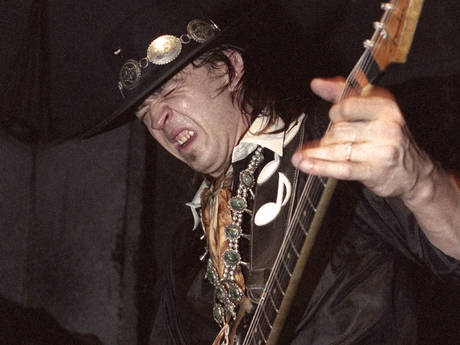
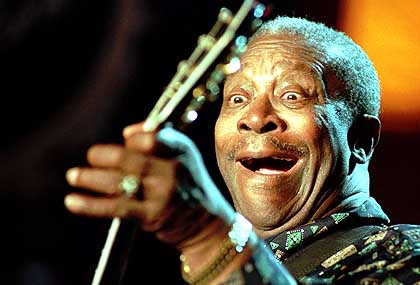
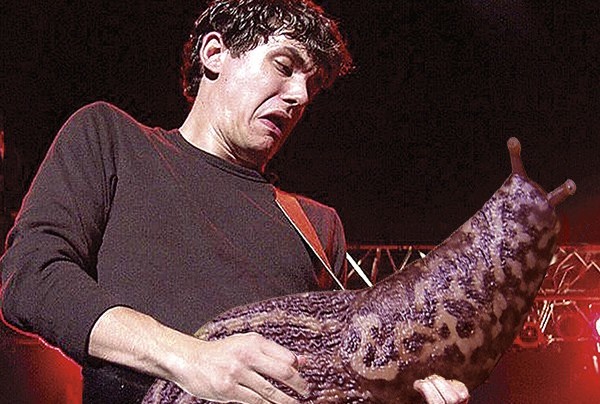
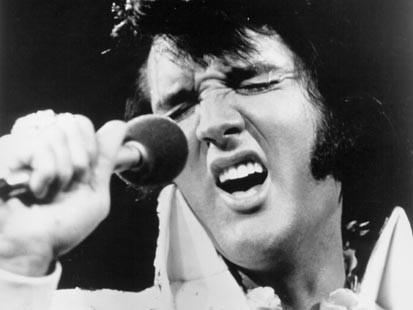
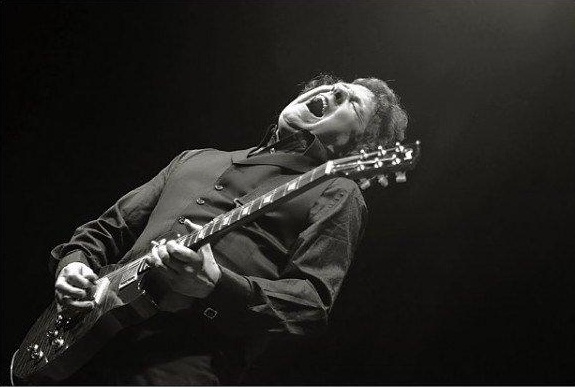
Don Felder was the weirdest to me. The way that guy ‘chewed air’ when playing solo’s, it was just so unrealistic. At least players like SRV, BB, Vai and others pull a guitar face when they hit a sweet note or some equally emotive double stop or chord. Jimi was the best though. He just chewed gum with a bored look on his face half the time but it still looked way cool.
Sometimes it just helps get the notes out. I love Carlos Santana’s statement that sometimes you have to make ugly faces to produce beautiful music.
Pretty sure we should all make a stop at the lavatory before going on stage. I mean really??? 3-4 hours without a “pit” stop playing, singing and strutting about the stage? LOL.
Jonny Lang is a perfect example of feeling the music guitar face.
Im practicing bends as of now and i thought i have built up callouses.
This is a new pain and i ended up making sour faces
I think that the proverbial “guitar face” is a result of the guitars intense vibrations ( especially playing basses) causing erections in the players. It happens to me whenever I’m playing my acoustic bass.
It’s just another form of “LOOK AT ME”.